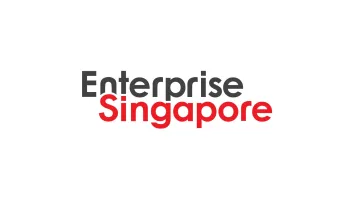
Security takes the stage with deal
Despite tight market conditions, Nokia is experiencing a boom in its security appliance business as it undergoes a new type of growth. In December 2008, Nokia announced that it had signed an agreement for Check Point Software Technologies. The agreement gave Check Point the authority to acquire Nokia’s security appliance business unit. Both businesses have collaborated with each other for over a decade to deliver industry-leading enterprise security solutions. And this agreement it seems is a natural progression for these two companies. Nokia’s Vice President for Security, Greg Podshadley said that this transaction “will provide the best path forward for our valued customers and partners.” And Podshadley added that “the many synergies between the two companies will bring strengthened products and services to our customers and partners for years to come.”
Already a name in the security appliance business for more than a decade, the Nokia security offshoot is excited about its continued success and it has good reason to think so with a portfolio of products and services to die for. Business relies on reliable networks, and network security is foremost among the requirements that make this network readily available to its users. And as external network threats become even more prominent with the exponential advancement of infiltration software technology, network protection becomes even more essential, demanding an in-depth and smart security strategy with layers of network-aware security services.
Fighting fire with firewalls
Firewalls, Intrusion Prevention Systems (IPSs), and Unified Threat Management (UTM) are three important security services. The firewall enforces security policies and access rights to guard against intrusion, and identify potential threats to protect against attack. Firewalls and Virtual Private Networks (VPNs) are the first line of defence between an organizations’ protected computer network and the unpredictable “anything goes” Internet. By inspecting network traffic and permitting access based on organizational’ security policies, firewalls can stop attacks before they impact business.
Intrusion Prevention Systems (IPS) block and prevent attacks based on intelligent analysis of network traffic. Unlike firewalls, they are designed to operate invisibly on the network. They do not have identifiable IP addresses and they do not respond directly to any traffic. IPS technology offers a broader view of network operations than firewalls do by offering information on suspicious activities such as overly active hosts, bad logons, and inappropriate content.
A unified approach
Unified Threat Management or UTM is characterized by the inclusion of many security features in a single device. UTM includes a diverse range of features including network firewall plus intrusion prevention, spam filtering, antivirus functions, and content filtering. Nokia’s most popular IP security platforms include firewall/VPN and UTM appliances that extend all the way from compact branch office appliances to powerful multicore platforms for data centres at the core. “In this year especially, it’s important that we enable customers to un-burden their staff even further, whether by automating more firewall tasks or building time-saving tools, such as the configuration migrator called IPSO 6.1, which is capable of transferring all firewall settings during an upgrade,” said Podshadley. Customers choose Nokia security products because of their dependability, consistency, and choice in name which has built its experience in the security sphere for more than a decade. “Customers appreciate the expanse of Nokia’s security portfolio, simple migration paths, and the ability to leverage investments.
For example, customers can improve performance with our Accelerated Data Path (ADP) modules- instead of upgrading to a new platform,” said Podshadley.
Servicing industry
Support is also an important issue when it comes to global clients and their installation. But Nokia provides tremendous support through a customised and versatile package. “When it comes to serving the complex requirements of businesses worldwide, we know that one size does not fit all,” explains Podshadley. “That is why we developed a variety of flexible support offerings with the ability to easily adapt as needs grow and change,” added Podshadley. Each service is designed to ensure maximum up-time and performance for security solutions, with a single point-of-contact that simplifies maintenance and support,” he said.
And the issue of ease in clients’ management of Nokia’s security systems for clients is also being addressed. Nokia Horizon Manager is a good example of a tool that enables customers to deploy Nokia firewalls quickly and easily across multiple locations. Nokia Senior Vice President of Services and Software, Tom Furlong said “Nokia’s IP security platforms have developed a well-deserved reputation as the premier platform on which to deploy Check Point’s leading security software.” The experienced sales and support personnel, many of whom have been with the network security business for years, are an important part of the business. Check Point expects to retain these key employees as the new company is being created. “This business fits naturally with Check Point, and the combination will provide a great path forward for the thousands of customers who depend on Nokia security solutions today,” said Podshadley.
For further information, customers can also contact local sales representatives, and inquiries can be sent to [email protected]. Resellers can contact their local channel account manager and accredited partners can log in to the Nokia for Business partner portal at https://www.nokiaforbusiness.com.














